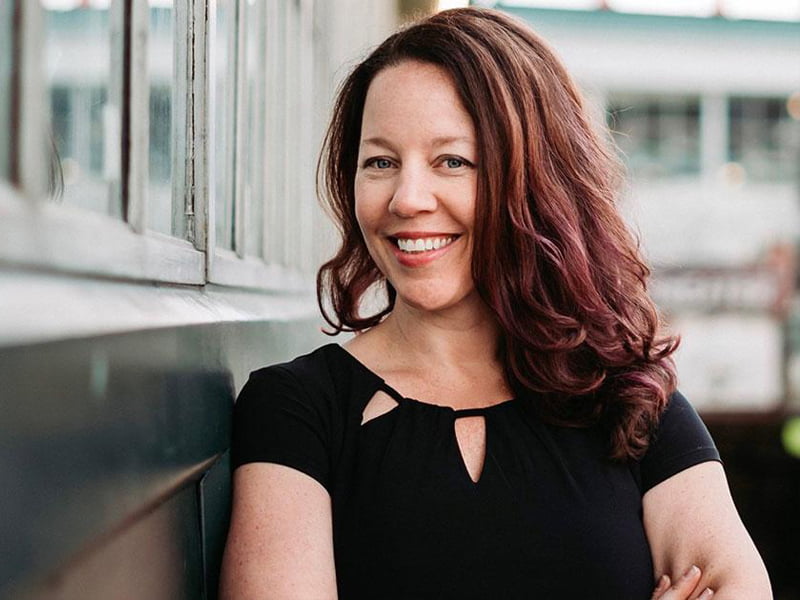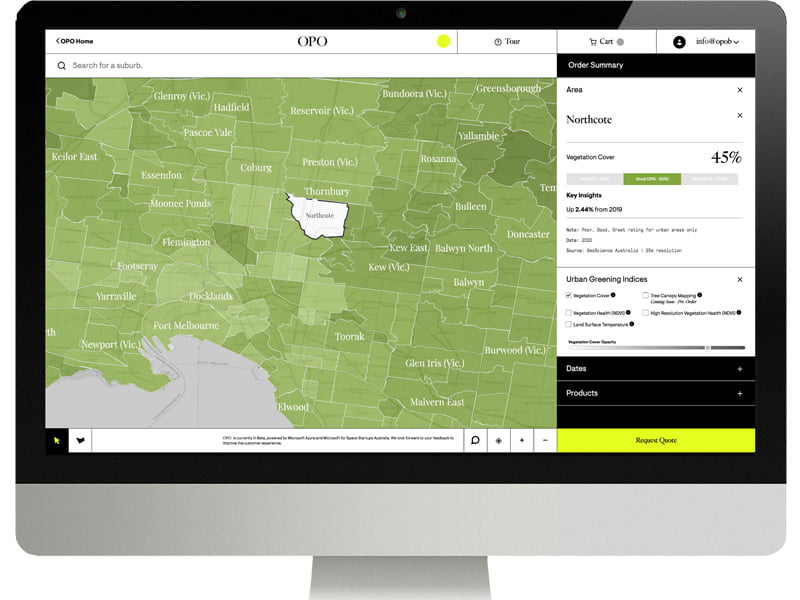Microsoft Australia’s Lynn McDonald is on a mission to help the local space industry take off and “break the mould”, with an aim to have Microsoft as one of the key players powering it.
The former US Air Force colonel who has also worked for the CIA has been heavily involved in the space industry for 25 years and was recently hired as Microsoft’s Azure space lead for Australia.

“I retired in 2019 as a colonel from the Air Force and I spent my entire time in all things space,” she tells InnovationAus of her career’s history. “So [in] space operations, satellite operations, and space launch. I led operational testing out of the Pentagon, and for some major space programs like GPS, which we all know and kind of use in our daily lives.”
Her local appointment followed her application for the Global Talent visa – a permanent visa for people who have an internationally recognised record of exceptional and outstanding achievement in an eligible field. Once accepted, she flew to Canberra in March this year and completed two weeks’ mandatory quarantine.
Despite many Australian space companies locating themselves in Adelaide at innovation precinct Lot Fourteen, including the Australian Space Agency, Ms McDonald said it was decided she would be based in the nation’s capital as a central location to engage with her team spread across Australia. Canberra was also chosen, she said, because “it’s a hub for Defence in government and our support and enabling technologies and engagement with Defence and government are important, so this seemed like a natural landing spot”.
Now several months into her new role, Ms McDonald this week launched the Microsoft for Space Startups Australia program, which provides eligible space startups with credits to the Azure cloud, access to a broad range of Microsoft technologies, and the opportunity to work with Microsoft specialists, sales teams and mentors to support and accelerate their companies.
Ms McDonald is also keen to tout Microsoft’s wares to Defence, which recently announced it would establish a Space Division within the Royal Australian Air Force in early 2022 after being allocated $7 billion by the government to improve how it operates in space.
“We’re at this really exciting time to be on the forefront of developing technology, not only as the industry stands up and rapidly evolves, but also as Defense is looking at sovereign capabilities in space, and with space technology,” Ms McDonald said. “And so the stand up of the Space Division … that is an important area, and we are absolutely focused on delivering the capability.”
Microsoft hopes to support local industry by enabling investment, partnering with businesses, and boosting innovation in areas like space R&D, artificial intelligence, machine learning, edge processing, and automation.
Ms McDonald and her team also appear on a mission to talk up the features of cloud-based computer processing for space, with a focus on convincing Defence of its opportunities.
“Coming from my background in Defense and government in space, I’ve seen the traditional ways of delivering programs [using] on-premise systems, in very hardware-focused systems, and what you get and what you don’t get,” Ms McDonald said.
“When you start virtualising and building out systems that are software-defined, it just opens up the aperture … for building flexible, open architectures that can rapidly evolve with technology and with demands and the environment that Defense will face and … the ability to integrate those systems from a Five Eyes perspective,” she said.
“It really just opens up that opportunity in terms of building flexible and secure architectures in cloud platforms.”
She said Australia has an opportunity to “break the mould” with space.
“Whether it’s Defence or commercial industry in the Australian space industry, there really is this fresh slate to just do it in a uniquely Australian way.”
One of the first to benefit from Microsoft’s startup program is Office of Planetary Observations, a Melbourne-based company whose mission is to create greener, more liveable and sustainable cities. The company uses satellite-sourced data to provide insights that landscape architects and town planners need to promote urban greening and to build climate-resilient cities. This includes providing details within an online dashboard about vegetation cover and health, land surface temperature and maps of the tree canopy in a specific area.

Another startup to receive Microsoft’s support is Spiral Blue, which is building an onboard computer for Earth observation satellites that processes images on the satellite as they are collected. Currently, due to bandwidth constraints, most processing is done on the ground, meaning only a small fraction of data that could be collected and turned into useful information is sent back.
Ms McDonald applauded local space research and companies like Spiral Blue that are figuring out how to optimise the processing of satellite data.
“Where we can push that [processing] out to on-orbit satellites or on our platforms is really where we can start optimising the functionality and capability of these technologies,” she said.
“When you can push some of that to the satellite, you start closing the time factor … of getting to critical points of data, and priority pieces of data on the satellite.”
Another area she believed Australia could become a global leader was in “exploring space technology uses for sustainability, for regenerative agriculture, for water quality monitoring, for bushfire detection and mitigation, and for sustainable operations”. She also said Australia was well advanced in its research into smaller satellites, known as nanosats.
“When I attended the Space Research Conference in 2019, a number of university space research programs were there [and] the students were … presenting their work.
“I was completely blown away. They’re doing phenomenal work in the university space research programs here. And so I think there’s this opportunity to really leverage that.”
Do you know more? Contact James Riley via Email.

